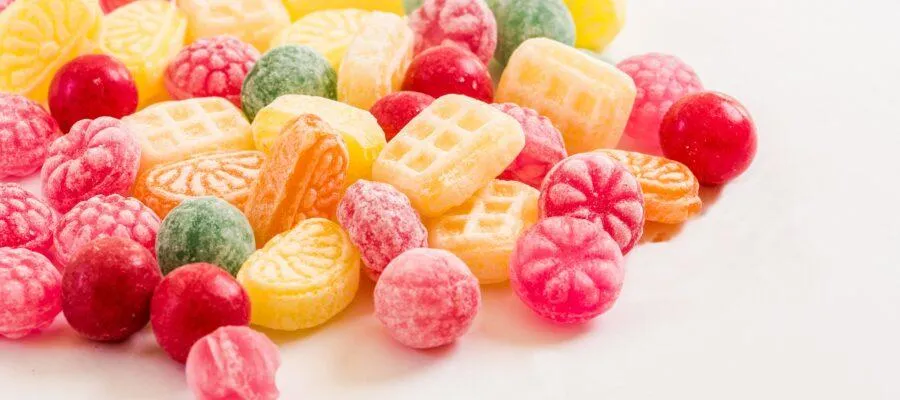
Why Do I Keep Getting Sugar Cravings In The Evenings & How To Stop It?
Why Do I Keep Getting Sugar Cravings In The Evenings & How To Stop It?
Without exaggeration, I must hear and see this question at least five times a week. You do really well all day; a healthy lunch and dinner are all good; you have even exercised; but then at around 8 p.m., it hits you like a sledgehammer.
It starts with a thought. “Something sweet would be nice,” quickly followed by “but I’m trying to be good”. You make it through until the next ad break, but then the thoughts seem to get bigger and more frequent. “It won’t do any harm.”
“You deserve it; you have worked really hard today.” “One little treat won’t matter.” “You can always start again tomorrow.”
“But your trying. What about those jeans that you can’t quite do up? If only I had more willpower. Perhaps I should just have some fruit.” The counterarguments just don’t seem to be having any impact, and are David against the sugar monster Goliath?
Now there are plenty of theories about why these cravings happen, and like most things in the health and fitness world, they are open to interpretation and context-specific (i.e., there is no right or wrong answer; it is all dependent on the individual person and their unique situation; more on this next week, though).
From my 25 years of experience and working with 100’s of clients, for me, it boils down to 3 things:
Habit, Metabolic Need & Reward
Many of us are simply in the habit of eating treats or dessert, and our brains are just running programmes based on repetition. Our brains (in particular the limbic system, or ‘monkey brain’) like patterns, routine, and repetition. It is why we take the same route to work, sit in the same place, and drink from the same mug. We are running subconscious patterns that require very little energy because they are semi-automatic. It is how we learn that A is followed by B, followed by C. Pattern recognition allows us to feel safe because it allows our world to be predictable.
Our metabolic need is how much energy we need just to stay alive. Our brains know that sugar is the most easily consumed, processed, and digested macronutrient and, as such, will give us a lot of need to top up with the least effort in the shortest time. 60–70% of our glucose stores are used by our brains, and with many of us more stressed and exposed to more data and information every day (apparently we know we get more information in one day than our grandparents would have in one year), our brains are working harder than ever. It is easy to see why we feel this “need” for sugar—it is our brain’s preferred energy source. It is quick, easy, and readily available. Sorry for the pun, but it is literally a ‘no-brainer”: we need energy; our brains like sugar; we have sugar available; we eat sugar.
When we then try to restrict or deprive ourselves, we are basically fighting a losing battle. Our brains “need” it for survival more than we “need” to get back into our favourite jeans.
Reward—this comes right back to Day 1. We enter the world as new-borns, get upset, cry, and are immediately soothed with a warm, sugary drink (breastmilk). This pattern continues throughout childhood: we bang our knees, and we get a sweet treat to soothe us. We do well at school; we get a meal out to celebrate. We eat all of our main meal and are “rewarded” with dessert.
We become conditioned throughout our entire childhood to associate sugar with doing well and sugar to relieve pain.
Once again, our brains are just running a pattern recognition programme. Our brains are saying, “I’m in pain; sugar helps me stop feeling the pain; go find me some sugar!”
My top 3 solutions:
1: Figure out if it is a habit or a physical need. When you feel these cravings, do something different. If you just sit on the sofa trying to use willpower, you stand no chance of winning! Go have a shower, change your clothes, and get some fresh air. Just do something to distract yourself for 15 minutes. If, after doing this, you are still craving, then chances are you have a physical need—in which case, go and eat!
2: Find other ways to reward yourself. Ultimately, we are always seeking a feeling produced by seratonin (our feel-good hormone). The problem is that we have associated this feeling with food. Instead, do something else to feel good—call a friend, play a game, or read a book. Many of us are simply bored in the evening and look to food for quick, temporary relief. Rediscover the things that make you happy and smile, and you generally find you don’t “need” as much sugar.
3: Eat more protein and fat throughout the day. Again, this is too big a topic to go into here, but give your body what it needs for fuel, and it will stop’stealing’ the glucose supply from your brain. If you eat carbohydrates, always try to also eat something high in protein or fat at the same time. So if you eat fruit, maybe eat a handful of nuts at the same time.
As ever, if you feel that you need more help and support with your health and fitness, I am always happy to have an informal chat to see if any of our programmes would suit you. to get in touch.